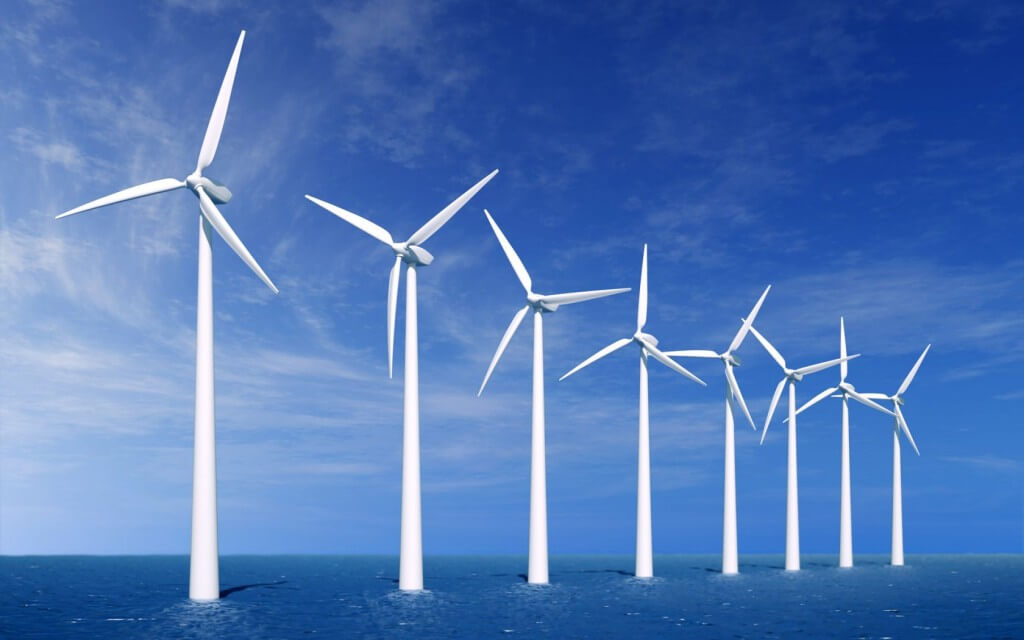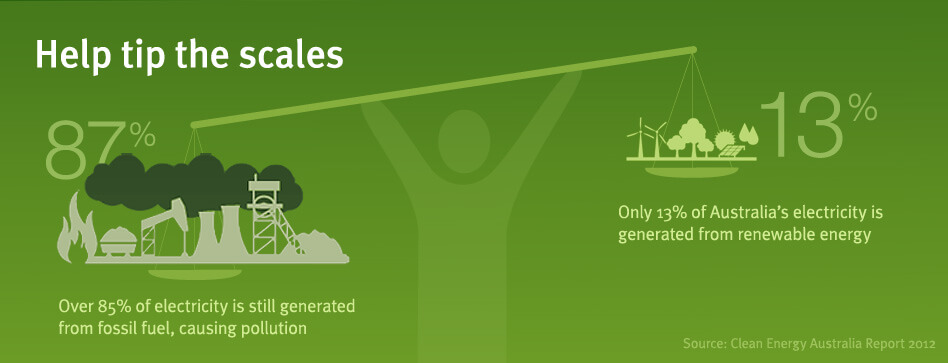For irregular readers, I’m an electrical engineer in the power industry. My day job was building new substations in suburban streets, and now my job is to do maintenance on these kiosk sub stations that supply houses, businesses and everything in between!
My capstone project (ie my engineering thesis) was about micro hydro power in Guinea, near Indonesia. Another student did a technical analysis, and went to the village it was installed in, whilst my thesis was about ensuring that matching technology to communities were assessed on all their needs, not just how many light bulbs! A more transdisciplinary approach – which wasn’t truly ‘engineering’ but as a double degree student with an Arts degree, I think it was acceptable. In any case, I got a Distinction (the only grading higher is High Distinction).
Part and parcel of my thesis preparation was to assess all types of renewable energy sources for the community. I independently researched geothermal, solar, wind, biomass and hydropower. The alternatives being used in these areas are largely diesel generators.

source: technologygreenenergy.blogspot.com
Overall, micro or pico hydro are ideal for mountainous regions in the highlands of Papua New Guinea, and Indonesia. Their needs are small – lighting in evenings, safer cooking options rather than burning wood and the hazards of smoke. In some cases, they have TVs. Essentially, there needs are small, and the technology is an appropriate size.
However – can renewable technologies work for our developed economies? If you’re reading this, you have to have electricity, and more than for a few hours a day! The demand you and me create on the network is a whole different ballpark to these rural mountainous communities. The problem with renewable energy sources is that storage isn’t simple – nor is storage simple with the current nuclear or coal based power plants. The different with fuelled power plants is that you can ‘burn’ more when you know your going to have a peak demand on the network – in extreme weather conditions, in evenings when everyone’s home and cooking. Renewables predominantly only work well with batteries.

Batteries have a number of drawbacks. First, they aren’t cheap (yet), particularly the size you might need to store a few days worth of power. There’s issues with the type of power you get – now you get AC power – a wave. Batteries give you a straight line of power, no wave. To get a wave, you need a rectifier. That’s before we talk about the heavy metals that make batteries.

source: www.greenpower.gov.au
I totally support further research into renewable technologies, and battery storage. I think the solution is the level of investment where renewables can meet base load, and coal or nuclear power cover the ‘peak demand’ that I mentioned before. The reality is, though, that whilst renewables cost more per unit, it’s unlikely we’ll see the inversion of where we source our power.
What do you think about our power needs? How do you feel green and renewable power sources should be used vs how they are used currently?

I don't know the answer. It's so hard to think about going backwards with our power needs and using less. Here in Canada we are constantly slammed for our oil sands, AKA dirty oil production. There is no question it lays waste to the environment, and then the oil has to be refined and transported over land. Of oil pipelines, trucking, or rail, no transportation is safe, and they all do environmental damage. Meanwhile nuclear reactors can never be guaranteed safe, and their spent fuels have to go somewhere. This leaves my area using cheap, dirty coal. Ontario and Quebec have hydro power, but that requires the environmental devastation of damming vast river systems, and transporting the power. Wind power seemed like the answer, until everyone realized they didn't want noisy turbines within a few miles of them. We don't get enough consistent sunlight for solar power. And while tidal power is our great white hope, we haven't been able to harness it yet. It seems each clean energy source can only work in a very specific environment, and they all have side effects (like the metals in batteries or the noise of wind turbines or the flood plains of river dams).
It's certainly hard to think about going backwards – though interestingly, in Brisbane (where EoK is from, and it's a bit hotter) the expected growth hasn't been met, despite huge uptakes of air condition as it got cheaper. They also have a lot of household solar).
There's definitely drawbacks of every renewable, just as there is for the conventional technologies we're using.
Very interesting to read about it from an insider's point of view. A while ago we were told the monthly power bill at the school I work at and it was shocking. The school's entire pedagogy relies on technology (as with offices, businesses, manufacturing etc etc.) and it is hard to imagine reconciling the push to technology with the push to voluntarily cut power consumption. I don't know the answer either – other than research and development!
I'm even shocked by big households bill, like a former boss. Whilst i saw my family of five's bill, we have little to no air conditioning, which I think has a big impact. I think an easy starting point is turning off laptop chargers when not charging, as they still draw power – that's something I've tried harder to remember now. Same with mobile phone chargers.
Interesting post, Sarah. There's also the question about the energy used to make renewable energy sources, ie is the energy to produce solar panels ever met by the amount of energy produced by the solar panels. Great for those areas without electricity connection or without access to hydro or coal. As you say, the energy needs to be stored as well.
You got to do an interesting thesis. My son is doing chemical engineering – double degree but with science (physics). He's looking around for his work placement thingy. (You can see I am a mother who listens carefully to my children when they talk about science things. Not.)
Yeah it's a little different from my usual posts, but I thought I'd delve into some 'deeper' topics every now and then! I definitely agree, semi conductors for solar cells need to be mined. Say nothing of the efficiency – only about 26% of the sun hitting those cells converts to electricity – that's a radically inefficient technology when you compare it to other things!
It's ok – my mother hardly had any idea what I did day to day til she proofed my episode reports for my certification and then the penny finally dropped. That being said, almost every time she sees my BF (after a few wines) she asks what *exactly* he does :p As the BF is a good listener himself, he's put out by this!
That is so funny. I know we non-listeners are very frustrating to good listeners. I can imagine your BF's annoyance.
I had to tell my mother a hundred times what I was actually majoring in at uni (History & Politics). Not so difficult to remember?
And here's a question: do we actually use the electricity returned to the grid from households with solar panels?
I got scalded for not 'reacting' to things he was saying to wind me up (I should have told him I was being the bigger person!)
I'm not sure if we us the 'extra' electricity fed back into the grid… This sounds so silly from me, but I'm not sure if we look at the consumption of everyone vs the amount generated, at least if we do, I have no idea about it!
I have a friend (in Melbourne) who has solar panels on the roof of his rental and actually receives negative power bills, so the power company is paying him money. If that's the case in Melbourne with all of its crazy weather, I guess it would be easy to produce most of your power in Queensland with solar panels.
I think decentralising things is generally better for the environment. If people produce their own power with solar panels on their roofs, then you don't need as many huge power plants. If people grow some of their own food, then you don't need as many monoculture farms and huge supermarkets, etc etc
Sarah will be able to answer with greater knowledge, but I think negative power bills are a result of government subsidy, not due to actual production. And, as power cannot be saved on site, it is allegedly returned to the grid. But, (and Sarah, forgive me if I am wrong I do kind of listen to my in-house science boffins), the difficulty is having power running up and down lines so it's a nightmare for technicians to maintain or it doesn't make it …OK, now I give up. I stopped listening.
But my original point was, EoK, that the actual energy used to make the panels vs the actual energy produced may be greater, thus negating the alleged environmental benefits.
Correct Lucinda – it was designed to get over the 'hump' of the high cost of installing and buying solar cells – making it seem 'profitable' with the buy back tariffs helped people do a cost benefit analysis, and buy into solar cells with a guaranteed return. My issue is that this is unsustainable as a government policy if it was widely adopted, and they know that too.
On the other hand, you are right re: storage. So it does get fed back into the grid. The issue with this is, in the 'olden days' when I said to customers they had a power outage, I could turn off their source of power (ie the substation) and our guys could safely work, because next to no one 'backfed' into the network. Nowdays, my jobs is so much harder, as we have to go to every house/business/building and isolate their service – you can imagine the time this takes in many instances. But it's the price we pay to make sure the workers are safe. Incidentally, most of the staff I manage, have procedures they can work with this power remaining live, but not enough to cover every task they might complete in a given job. It's a real headache.
Lastly, the cells themselves aren't exactly something that last forever, and I'm not sure the silicone etc is great for the environment. But I'm not expert on this part of the process!
Hey EoK, I think it's great that he has installed them, and that he profits from the overall net. However, I don't like this idea, partly as it's unsustainable, as Organised Castle has mentioned on her blog, that the Newman govt in your state is rolling back the buy back tariff.
I definitely think in the longer term, the key is decentralisation, provided it's at a price point that's possible for at least some. I agree that making what you need makes you more mindful of your consumption, if nothing else! Although, where there's surplus (like your friend) then networks need to exist not to waste that – such as buy back to the grid, to use on no decentralised houses (or ones who can't supply themselves 100%), but likewise with produce – no need to have things spoil if others could benefit from your 'harvest'.
Sarah, this was interesting to read from your point of view being knowledgeable in the field. I don't know what the answers today are and i am not as knowledgeable as you are in this area. The one gripe i have with say nuclear is that it allowed us to use far more energy than we ever needed before. We didn't have stand-by appliances, we didn't have refrigerators that also had water and ice in the door which takes more components and energy. I think more study should have been given before building the plants such as how to clean up a disaster or how to dispose of the waste. Now it's a matter of continuing to live the lifestyle we are used to with the same or increased demands for power. It's hard to turn the clock back. Just like the person who believes a raise in pay will fix everything, then finds they need another raise because they got used to the increased income by increasing their spending. It's hard to change. But change we must.
I believe renewables are important to continue to refine and make with less components that carry a hazard, but I also believe we need to reduce our wants. We need to give up the McMansions for a home that suits our actual needs. As I write this, in my home, I have only one external wall so while the heat is on when needed it's not needed as much as if I lived in a detached home. The only electricity being used at this moment is to keep my chest freezer operating and a 13 watt CFL bulb to see by. I am writing on a notebook which is fully charged and has a battery life of 4 hours.
On the other hand, I recently saw an article in a home magazine about a family of 6 who have so much laundry they have installed 2 full sets of washers and dryers to meet their laundry needs. There is a lot of improvement society as a whole can make to reduce the energy needs.
Sorry this is so long, it's a subject close to my heart.
Long replies are most welcome, and I did write this with you in mind.
I'm gobsmacked that people would need two washers for 6 people – here in Sydney they are selling apartments, that are designed with a shared entryway and laundry. In some styles of older apartments, there's a laundry room for 4-6 units, and people just take turns. Makes way more sense than needing two washers for one family!
The greatest gains in power generation come from developing economies, and implementing changes our nations have not picked up – like using more renewables. When they haven't known any different, it's possible.
The McMansion culture is beyond my understanding, and to normal company, I simply say 'I wouldn't want to clean more' which is partly true. I can't imagine needing more space (I already have too much, and in retrospect, the BF agrees too).
I was blown away by the need for 2 washers and dryers for one family. In my apartment building there are 16 apartments and more than 25 people living here. We use 2 washers and dryers, that's it for all of us. It would sound even worse to that family to know that the dryers won't work at the same time. They were both vented together and the pipe doesn't allow proper ventilation. We manage quite well even with the one dryer scenario. it is very rare that both washers are going at the same time. Can you imagine how many clothes they must have and how many times a day they must change those clothes to need two sets for one family?
I thought you might of had me in mind after our discussions on nuclear energy and my views on them being built before figuring out how they would deal with disasters or the spent fuel rods, and I appreciated reading your point of view.
I am with you on the cleaning of a McMansion, but most of them hire people to do the cleaning for them, along with landscapers to cut their grass. Very few take care of their own property. I could tell you shocking stories of the waste in these homes. But just for an example, my son had a friend who's house was large enough to allow each child to have 2 bedrooms, one to sleep in and one to entertain in with all the electronics and game systems each child wanted. The second bedroom was equipped with fully stocked mini fridge for snacks, couches, etc. To top it off each bedroom was built with their own bathroom which connected the bedroom to the entertaining room.
Now that you have lived in your new home a bit and find it's too big, any regrets that you didn't choose the other apartment you looked at?
One major advantage with the use of renewable energy is that as it is renewable it is therefore sustainable and so will never run out